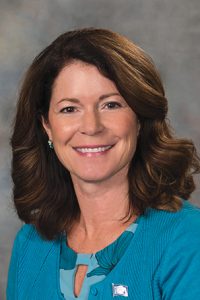Equal treatment sought for religious organizations
State agencies and political subdivisions would be prohibited from disproportionately restricting religious activity during a state of emergency under a bill heard by the Judiciary Committee Feb. 26.

Under LB167, sponsored by Lincoln Sen. Suzanne Geist, religious organizations would be permitted to continue operating and engaging in religious services during a state of emergency.
The government still could impose health, safety or occupancy requirements on a religious organization if those restrictions are applied to all organizations and businesses and further a compelling state interest in the least restrictive way possible.
Protections granted under LB167 could be used as a defense in any judicial or administrative proceeding, as well as a basis for a tort claim against the state. The court could award injunctive relief and financial damages if a religious organization successfully proves its claim.
Geist said religious organizations not only meet people’s spiritual needs but also provide essential support services including feeding the hungry, housing the homeless and providing mental and physical health care.
“Religious organizations provide services that are vital to the health and welfare of our state,” she said. “Churches and their ministries are desperately needed to provide these services to those in need and are especially important in a time of crisis.”
Solo Mwania, lead pastor of Lincoln City Church, testified in support of the bill. He said that religious leaders must be allowed to help their congregations during challenging times.
“We’ve continued to work with families as they navigate the hardships that we’re all experiencing due to this pandemic,” Mwania said. “In Nebraska, we could at least feel that our legislators are protecting us to do our work without the fear that our government will infringe upon that.”
Marilyn Asher of Omaha also spoke in support of the bill. She said she worries about increased rates of depression among people who were unable to attend spiritual services during the coronavirus pandemic due to restrictions on the size of indoor gatherings.
“I don’t think we can overestimate the value of the faith community in Nebraska,” Asher said.
No one appeared at the hearing to testify in opposition to LB167 and the committee took no immediate action on the bill.


